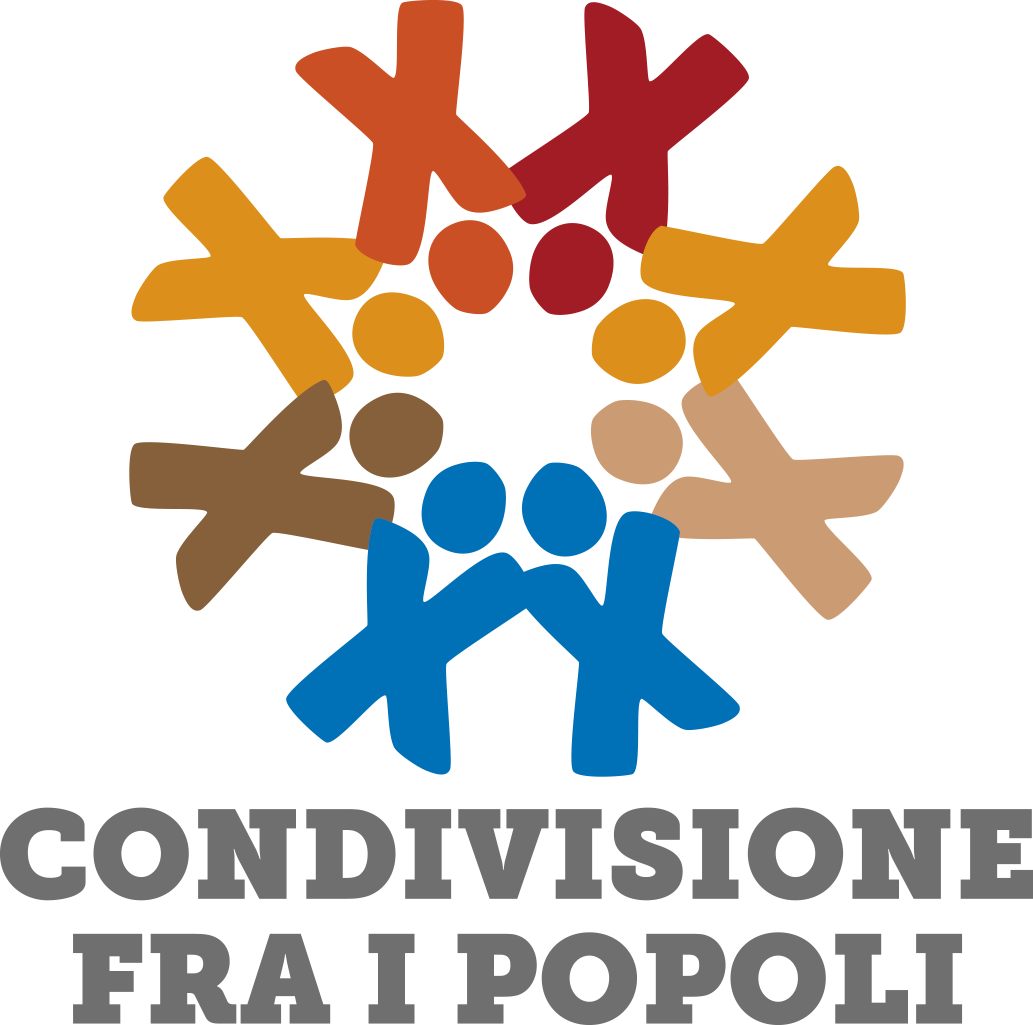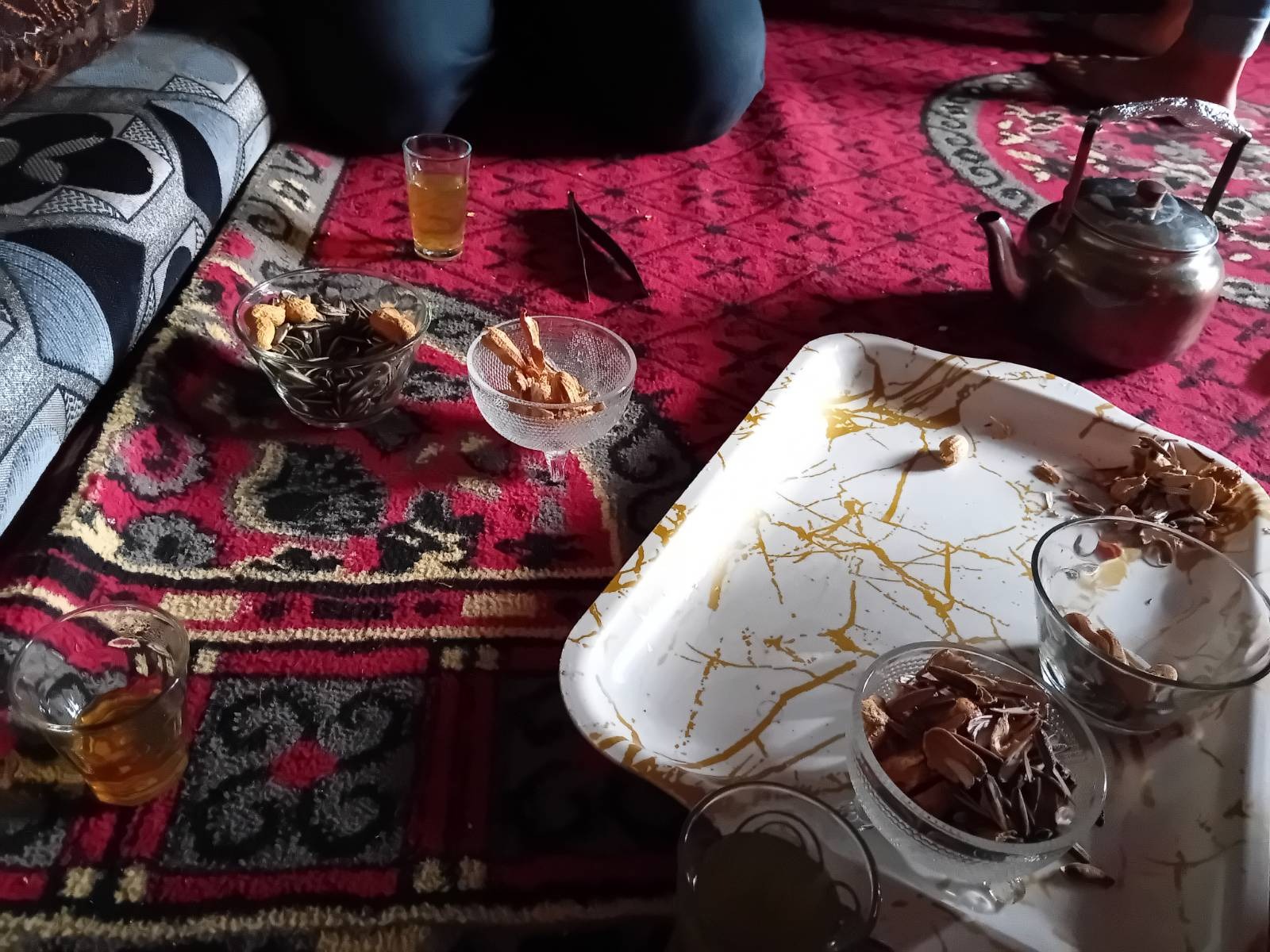
From the house of S. and his family, the only landscape we can see is a gray moor at this point. It’s been raining continuously for three days.
We are visiting this family to get updates on the health conditions of their parents. Their father has got an eye health problems and their mother is being treated for breast cancer.
Soon, indeed, the Italian doctor will come to Lebanon and we would like to have everything ready for him to visit them.
They have five children, but their house is always full of people. The classic extended family: more families living on the same landing and sharing much more.
Today, however, the house is strangely quiet, almost empty. As soon as we get there, they make us sit down, they serve us the mate and peanuts.§
It is the second time that I come to visit them, and they already know how much I like to smoke hookah.
It is there, ready for our arrival.
After the first pleasantries and updates, the conversation took another turn.
In fact, as if it was that circumstance to call those memoirs and without any specific questions, S. began to tell us about the time he was in Syria and he had been arrested as deserter and imprisoned.

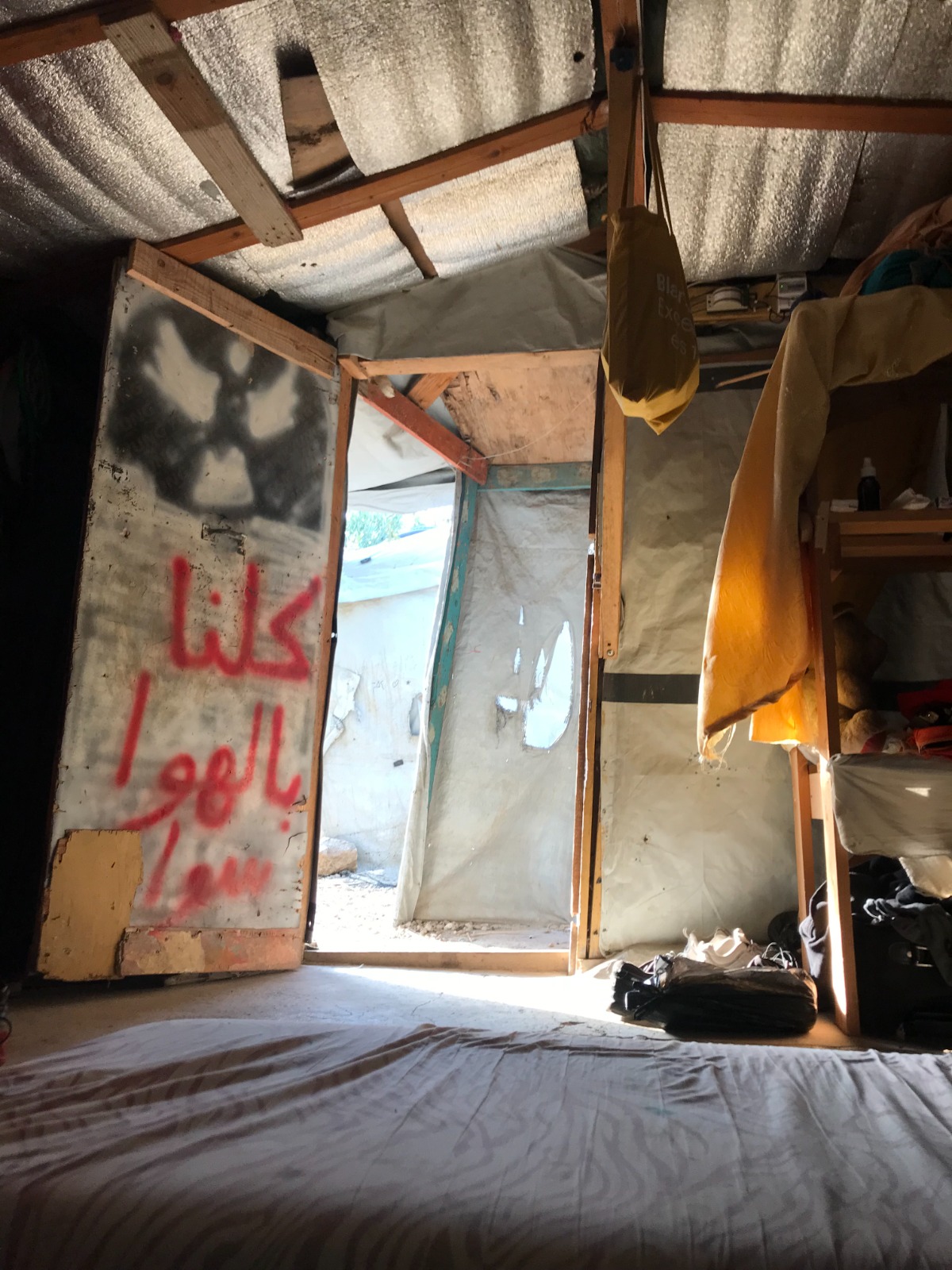 Operazione Colomba, the years spent in Lebanon, Humanitarian Corridors and the solidarity shown in these years have taught me a lot and opened many new paths.
Operazione Colomba, the years spent in Lebanon, Humanitarian Corridors and the solidarity shown in these years have taught me a lot and opened many new paths.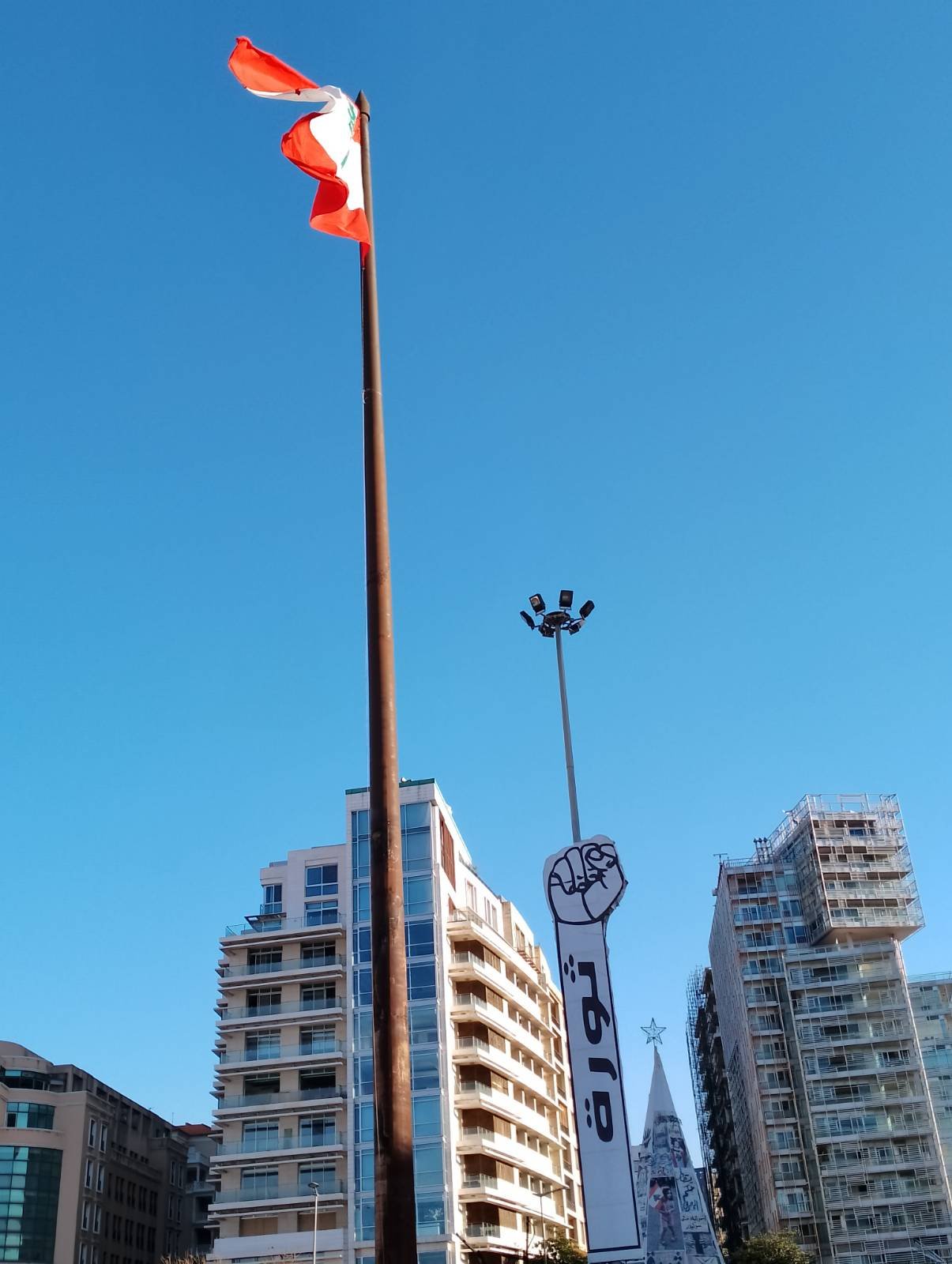 K. brings his hand to his chest. His fingers will forever be marked by the hammer blows he received during his nine years in prison in Syria.
K. brings his hand to his chest. His fingers will forever be marked by the hammer blows he received during his nine years in prison in Syria.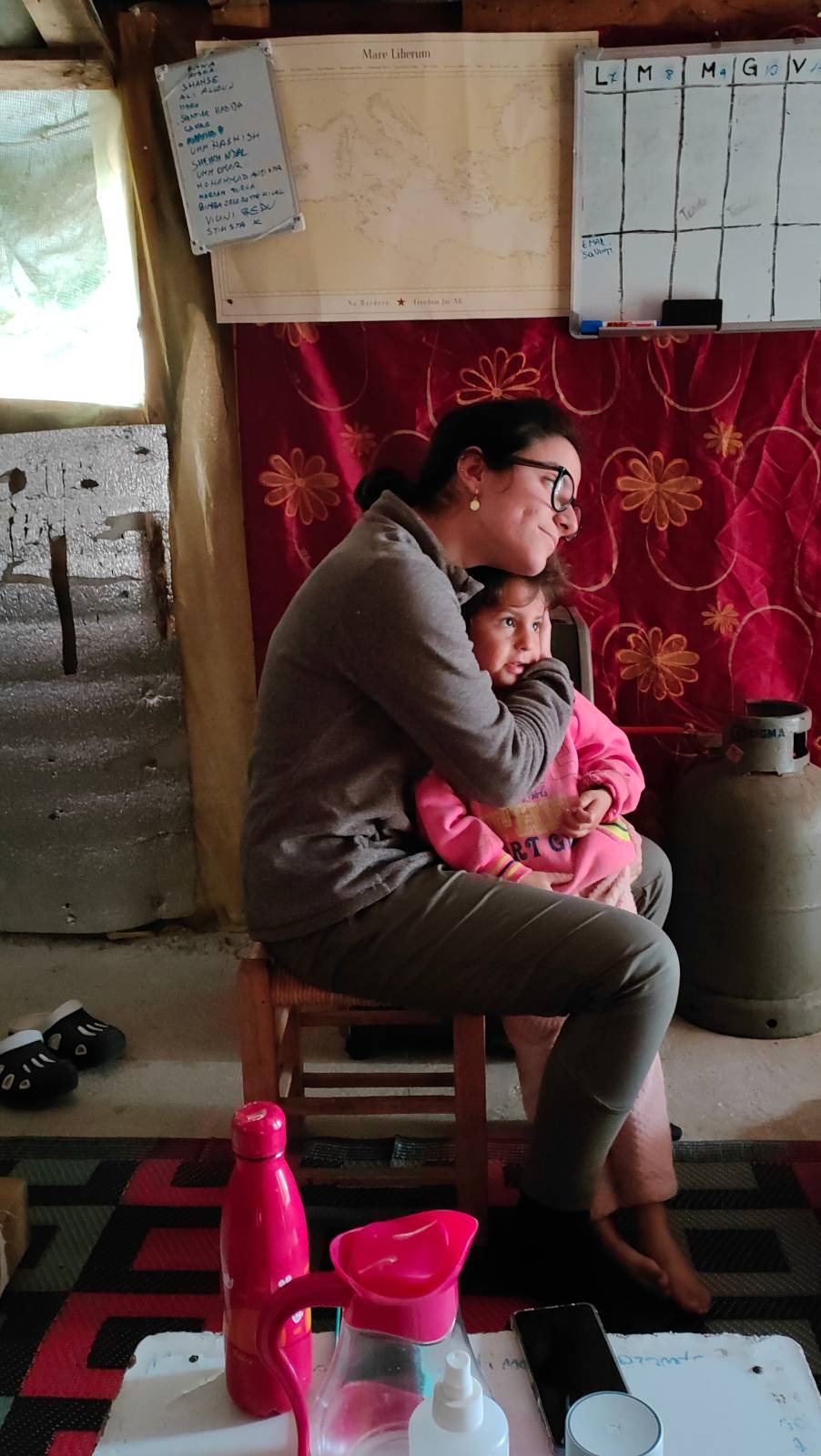


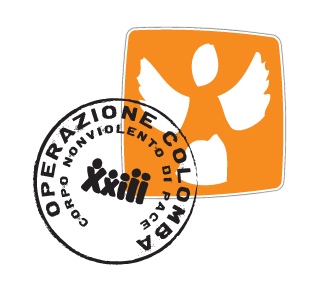 OPERAZIONE COLOMBA
OPERAZIONE COLOMBA
